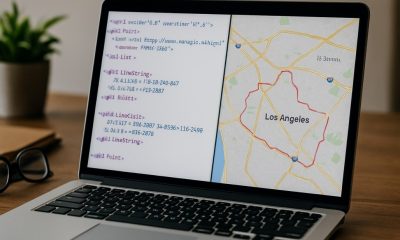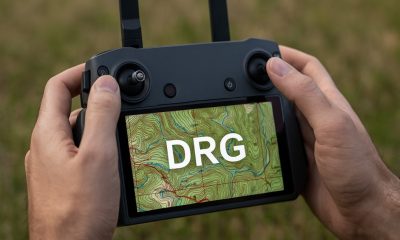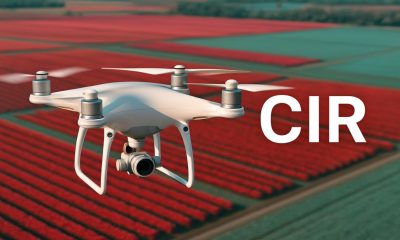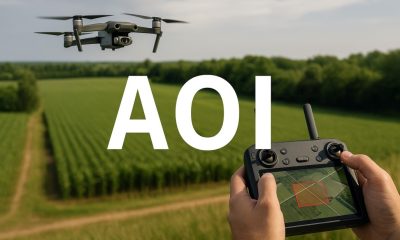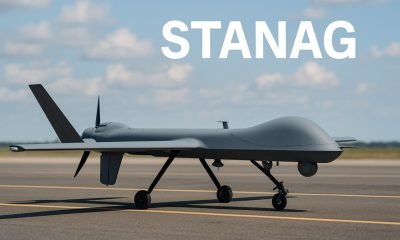- Acronym Guide
- AAM
- ABS
- AC
- ACAS
- ADS-B
- AFAC
- AGL
- AI
- AIM
- ALS
- AM
- AMA
- ANSP
- AOI
- APPI
- AUV
- AUVSI
- ARPAS-UK
- ASTM
- ATC
- BVLOS
- CAA
- CAAC
- CAB
- CASA
- CATT
- CBO
- CBR
- CBRN
- CDMA
- CDR
- CFR
- CIR
- COA
- COMINT
- CORS
- COTP
- COTR
- CPTED
- CV
- C2
- DAA
- DEM
- DFI
- DFS
- DGCA
- DHS
- DOD
- DPA
- DPEs
- DRG
- DRO
- DSM
- DSMX
- DSP
- DSSS
- DTM
- EASA
- EFT
- EO
- EOD
- EO/IR
- ELINT
- EMI
- ESC
- EVLOS
- eVTOLs
- FAA
- FCC
- FCS
- FHSS
- FICCI
- FLIR
- FOB
- FOV
- FPS
- FPV
- GBDAA
- GCP
- GCS
- GDPR
- GML
- GNSS
- GPS
- GSD
- GVC
- HDR
- HOGE
- IACRA
- ICAO
- ICS
- IMU
- INS
- IR
- ISA
- ISR
- ITU
- JARUS
- LAAMS
- LAANC
- LAATM
- LAI
- LBA
- LIDAR
- LOS
- LSALT
- MAC
- MAVLink
- MLIT
- MMS
- MSL
- MTOM
- NDAA
- NCSL
- NFZ
- NIST
- NMEA
- NOTAM
- NPA
- NPRM
- NTIA
- OBIA
- OEM
- OFDM
- OOP
- PASM
- PAV
- PCV
- PdM
- PEC
- PIC
- PID
- PIPL
- PLD
- PM
- PN
- PPK
- PPS
- PSM
- PWM
- UAM
- UAOP
- UAS
- UASTM
- UAV
- UCAVs
- UHD
- UHF
- USV
- UTM
- RAIM
- RCC
- RCS
- RFI
- ReOC
- RePL
- RMS
- ROI
- RPAS
- RPC
- RTH
- RTK
- SaR
- SAR
- SARP
- SBAS
- S.Bus
- SBIR
- SEDENA
- SfM
- SFOC
- SIGINT
- SLAM
- SMS
- SORA
- STANAG
- STTR
- sUAS
- TCAS
- TCCA
- TFR
- TIN
- TOF
- TP
- TPS
- TSA
- VHF
- VLOS
- VTOL
Drone Acronyms
What is PIPL (Personal Information Protection Law)?
By
Jacob StonerTable Of Contents
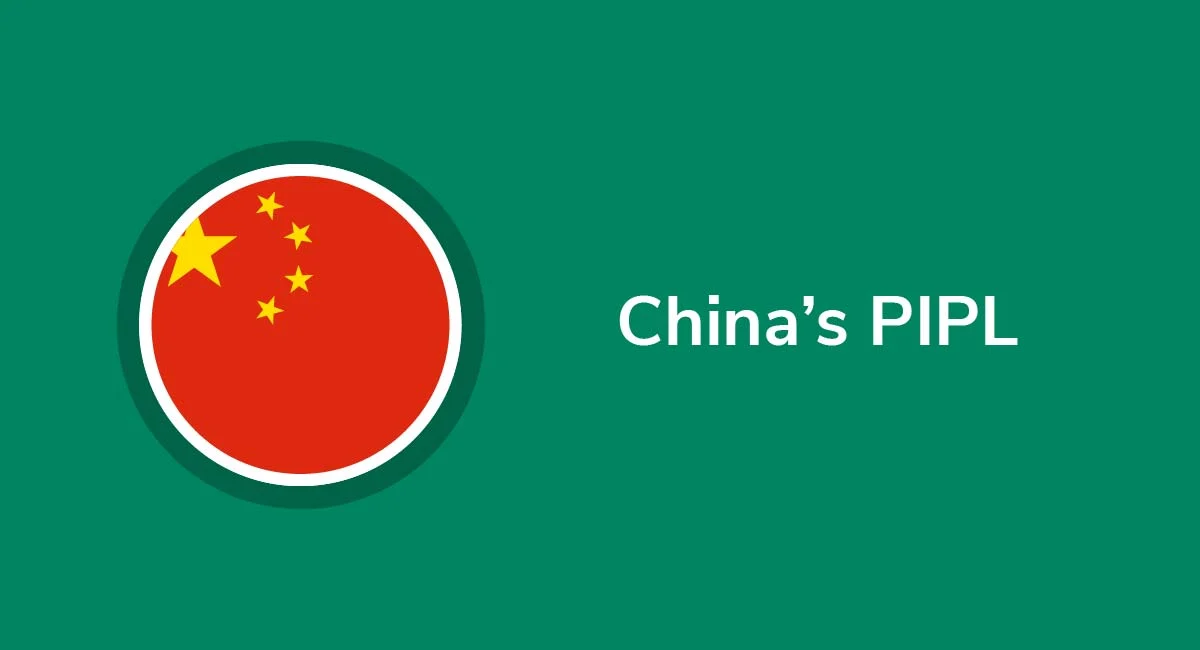
Definition
PIPL stands for Personal Information Protection Law. It is a legal framework established by the People’s Republic of China to regulate the processing of personal information, ensuring the privacy and protection of individuals’ data. PIPL provides guidelines for how personal information should be collected, stored, used, and shared, and imposes penalties for non-compliance.
Usage
PIPL is used to govern the collection, processing, and storage of personal information by organizations, including those operating drones that collect data such as images, videos, and other personal information. Compliance with PIPL is mandatory for organizations handling personal data of Chinese citizens, ensuring that their privacy rights are protected.
Relevance to the Industry
PIPL is critical for the drone industry as drones often collect large amounts of data, including personal information. Ensuring compliance with PIPL helps organizations avoid legal repercussions and build trust with users by demonstrating a commitment to data privacy and security. This law impacts how drone operators manage data and necessitates the implementation of robust data protection measures.
Example in Use
“The drone company implemented strict data protection protocols to comply with PIPL, ensuring that all collected personal information is securely stored and processed in accordance with the law.”
Frequently Asked Questions about PIPL (Personal Information Protection Law)
1. What are the key principles of PIPL?
Answer: The key principles of PIPL include:
- Lawfulness, Fairness, and Transparency: Personal information must be processed lawfully, fairly, and transparently.
- Purpose Limitation: Personal data should be collected for specified, explicit, and legitimate purposes and not further processed in a manner incompatible with those purposes.
- Data Minimization: Data collection should be limited to what is necessary for the intended purposes.
- Accuracy: Personal data should be accurate and kept up to date.
- Storage Limitation: Personal data should be kept in a form that permits identification of data subjects for no longer than necessary.
- Integrity and Confidentiality: Personal data should be processed in a manner that ensures its security, including protection against unauthorized or unlawful processing and accidental loss, destruction, or damage.
2. How does PIPL impact drone operations in China?
Answer: PIPL impacts drone operations in China by:
- Requiring Consent: Drone operators must obtain explicit consent from individuals before collecting their personal information.
- Implementing Data Protection Measures: Organizations must implement robust security measures to protect collected data from breaches and unauthorized access.
- Ensuring Data Rights: Individuals have the right to access, correct, delete, and restrict the processing of their personal data.
- Compliance Obligations: Drone operators must comply with data protection requirements and may face significant penalties for non-compliance, including fines and operational restrictions.
3. What steps can drone operators take to comply with PIPL?
Answer: Drone operators can take the following steps to comply with PIPL:
- Obtain Consent: Ensure that explicit consent is obtained from individuals before collecting their personal information.
- Implement Data Security Measures: Adopt robust data protection technologies and practices to secure personal information.
- Conduct Data Audits: Regularly review and audit data processing activities to ensure compliance with PIPL.
- Train Employees: Provide training to employees on data protection principles and PIPL requirements.
- Develop Privacy Policies: Create and maintain clear privacy policies that outline how personal information is collected, used, and protected.
For examples of these acronyms visit our Industries page.
As the CEO of Flyeye.io, Jacob Stoner spearheads the company's operations with his extensive expertise in the drone industry. He is a licensed commercial drone operator in Canada, where he frequently conducts drone inspections. Jacob is a highly respected figure within his local drone community, where he indulges his passion for videography during his leisure time. Above all, Jacob's keen interest lies in the potential societal impact of drone technology advancements.


